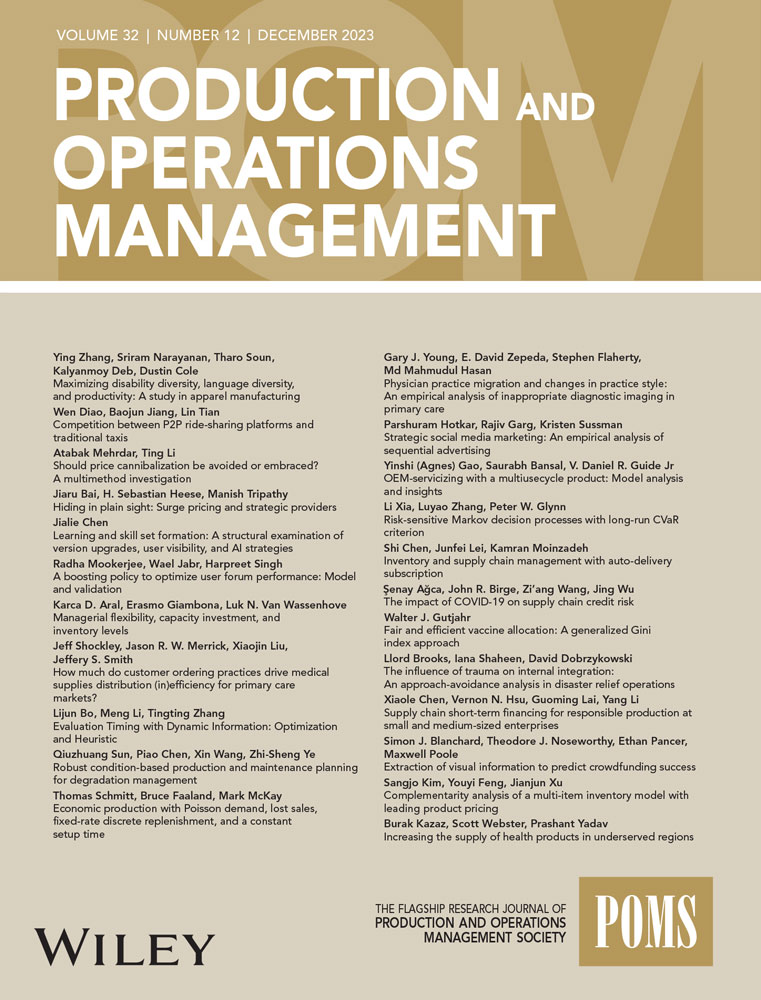为动荡时期的供应链及时提供帮助
IF 5.1
3区 管理学
Q1 ENGINEERING, MANUFACTURING
引用次数: 2
摘要
2019冠状病毒病(Covid - 19)大流行和本世纪20年代初的其他近期中断导致商业媒体的部分内容将运营失败归咎于准时制(JIT)实践。因此,有人呼吁从JIT转向持有更多库存,以应对未来的中断,这被称为以防万一。学术界也出现了分歧。一些学者认为JIT没有弹性,而另一些学者则认为JIT即使在中断的情况下也能继续提供卓越的性能。在这场辩论的推动下,我们讨论了关于JIT的各种误解,这些误解是这场辩论的基础。此外,我们提出了适应动荡环境的不同方法,并认为如果在中断期间选择合适的JIT供应链环节,公司可以改善供应链绩效。本文章由计算机程序翻译,如有差异,请以英文原文为准。
Just‐in‐time for supply chains in turbulent times
Abstract The Covid‐19 pandemic and other recent disruptions in the early 2020s led to sections in the business press blaming just‐in‐time (JIT) practices for operational failings. Consequently, there are calls for moving away from JIT toward holding more inventory as preparation against future disruptions, which is referred to as just‐in‐case. The academic community is also divided. Some scholars argue that JIT is not resilient, while others maintain that JIT can continue providing superior performance even with disruptions. Motivated by this debate, we discuss various misconceptions about JIT that underlie this debate. Furthermore, we present different ways to adapt JIT for turbulent environments and argue that companies can improve their supply chain performance if JIT supply chain segments are chosen fittingly—even more so—during disruptions.
求助全文
通过发布文献求助,成功后即可免费获取论文全文。
去求助
来源期刊

Production and Operations Management
管理科学-工程:制造
CiteScore
7.50
自引率
16.00%
发文量
278
审稿时长
24 months
期刊介绍:
The mission of Production and Operations Management is to serve as the flagship research journal in operations management in manufacturing and services. The journal publishes scientific research into the problems, interest, and concerns of managers who manage product and process design, operations, and supply chains. It covers all topics in product and process design, operations, and supply chain management and welcomes papers using any research paradigm.
 求助内容:
求助内容: 应助结果提醒方式:
应助结果提醒方式:


